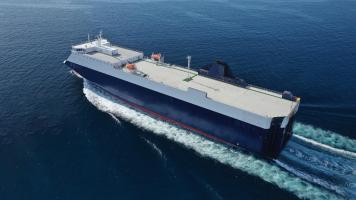2 January 2024 (Lloyd's List) - MAERSK appears to have reduced the number of ships it plans to send through the Suez Canal, following an attack on one of its containerships by Houthi rebels over the weekend.
The move comes as concerns intensify over the security of Red Sea transits, despite the US and allies having started naval escorts for commercial vessels in the region.
In an updated diversion schedule on January 1, the number of Maersk vessels involved rose from 152 announced on December 27th to 165, but those planned to transit Suez decreased from 59 to 38.
Of those originally slated for canal transit, 23 ships are now tagged "to be announced," reflecting the Danish carrier's more cautious stance on conditions in the area.
Maersk has been approached for comments.
Meanwhile, the company's vessels still set to traverse the canal have some time before arrival, allowing flexibility to change course if necessary.
Additionally, several ships have successfully completed southbound transits since yesterday, while Lloyd's List Intelligence data shows the Europe-bound Maersk Hangzhou entered the Gulf of Suez unaffected by the attack.
The Singapore-flagged 15,266 teu ship had called for US Navy assistance after being struck by Houthi rebel missiles and boats midnight GMT Sunday. American helicopters repelled the attackers.
Maersk subsequently said it was pausing all Red Sea sailings for 48 hours following the assault.
Just a few days earlier, it had indicated readiness to return to the Red Sea after the setup of the US-led multinational security effort Operation Prosperity Guardian.
This had ignited hopes routes in the region could gradually resume, easing logistic chain disruptions caused by ships sailing around the Cape of Good Hope - longer journeys at higher cost.
It also dampened sentiment among some speculators betting attacks would keep rates too high for too long, benefiting carriers.
French carrier CMA CGM announced similar plans to boost Suez transits, though it has not publicized changes after the Maersk Hangzhou incident.
"Although no new attacks have been reported since then, the developments in the past weeks have shown that there can indeed be a period of several days without attacks being performed, and yet the risk is unchanged," said Vespucci Maritime chief executive Lars Jensen in a LinkedIn post.
He indicated that if the Houthis find their actions effectively deter ships from entering the Red Sea without incurring direct consequences, the attacks have no reason to cease.
The UK and US are reportedly set to issue a joint statement as early as Monday giving the Houthis an ultimatum to halt attacks, after Britain's Defence Secretary Grant Shapps over the weekend hinted at possible air strikes on the rebels.
Other carriers seem to remain cautious about the situation, with very few ships returning to the Red Sea.
Hapag-Lloyd has yet to change its position of avoiding the routes, and only two large Cosco Shipping vessels appear set to call at Red Sea ports.
The 14,500 teu Cosco Shipping Kilimanjaro heading north is preparing to dock at Saudi Arabia's Jeddah port, while the westbound 14,074 teu CSCL Uranus is pointing towards the Gulf of Aden, with its AIS destination showing Djibouti port, according to Lloyd's List Intelligence data.







